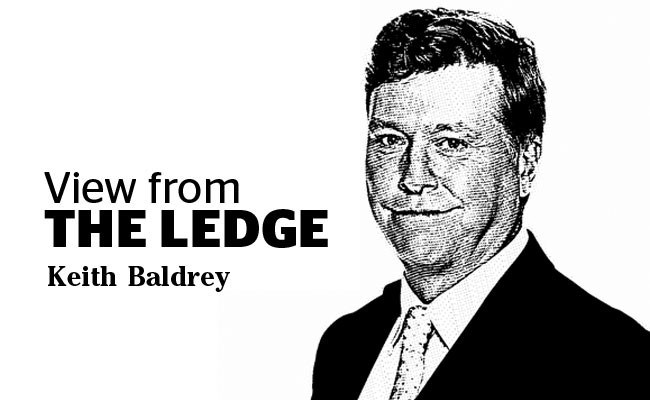Chances are most of us have lost someone to cancer, heart disease or a stroke, since those are the three leading causes of death in our general population.
But we are fast approaching the day when many of us will know someone who has died of an illicit drug overdose. In fact, this may soon become the fifth leading cause of death in B.C., on par with diabetes and more prevalent than accidents, influenza, liver disease and Alzheimer’s.
The overdose crisis engulfing this province shows no sign of slowing. Actually, despite all kinds of heroic efforts by front-line workers, things are becoming worse at an alarming rate.
And this is not a crisis confined to “the street” or places like the Downtown Eastside in Vancouver. Drug overdose deaths are occurring all over the province, in pretty well every municipality and often involving victims not necessarily associated with the drug-using lifestyle.
Last year, about half of those who died from an illicit drug overdose in B.C. were between the ages of 30 and 49, about 80 per cent were male and 85 per cent died in a residence (and not the street or a treatment centre).
Recently, a 17-year-old girl attending Victoria High School, where my kids went to school, died of an illicit drug overdose. As in so many cases, it’s thought she came into contact with fentanyl, a scourge that has made its way into various street drugs.
B.C. chief coroner Lisa Lapointe was brutally frank about the worsening situation at a news conference last week. She said despite more and more resources being used to address the crisis, the whole thing has simply become “unmanageable.”
“I think the introduction of fentanyl to our province is a game changer,” she told reporters, adding that this “contaminant” has turned a situation where there were always a number of drug overdose deaths into one where those deaths are exploding in number.
Nearly 150 people died of an illicit drug overdose in December, a higher number than in November. She gave no prospect of hope that the number will be lower this month or next month or the month after that.
Instead, she said what is needed is a long-term strategy that includes treatment, harm reduction, law enforcement, education and evidence-based strategies. Provincial Health Officer Dr. Perry Kendall, at that same news conference, called for an expansion of available drug dependency treatments similar to what is being tried, with good success, in Europe.
And Lapointe called for a “reset” when it came to public attitudes about drug dependency, saying there needs to be more education and compassion.
“A shift we’re seeing from drug dependency as a crime to drug dependence as a medical condition is critical,” she said.
The number of overdose deaths was 914 in 2016, an increase of 80 per cent, and there is every reason to think that escalation rate won’t change much any time soon.
More resources (such as treatment beds, safe injection sites etc.) to fight this epidemic are no doubt needed, but Lapointe points out even with more resources it is next to impossible to get people instant treatment on a 24/7 basis.
“I don’t know of any jurisdiction that has the resources to be able to provide treatment on demand,” she said, noting that 18 U.S. states had higher drug overdose rates than did B.C. “If you look at New Hampshire, for instance, they saw a 1,100 per cent increase in organ donations mostly because of drug overdoses. This is how hard this is hitting North America and we’re not alone.”
No, B.C. is not alone in this. And, unfortunately like in so many other jurisdictions, the problem is likely going to get even worse before it gets better.
• • •
I had a bit of a brain cramp in last week’s column, where I referred to a potentially messy nomination battle involving former NDP MLA Harry Lali in the riding of Yale-Lillooet. The riding’s name, of course, has been changed to Fraser-Nicola (and NDP leader John Horgan has since confirmed he tried, apparently unsuccessfully, to talk Lali out of seeking the nomination).
Keith Baldrey is chief political reporter for Global BC. [email protected]
What are your thoughts? Send us a letter via email by clicking here or post a comment below.



